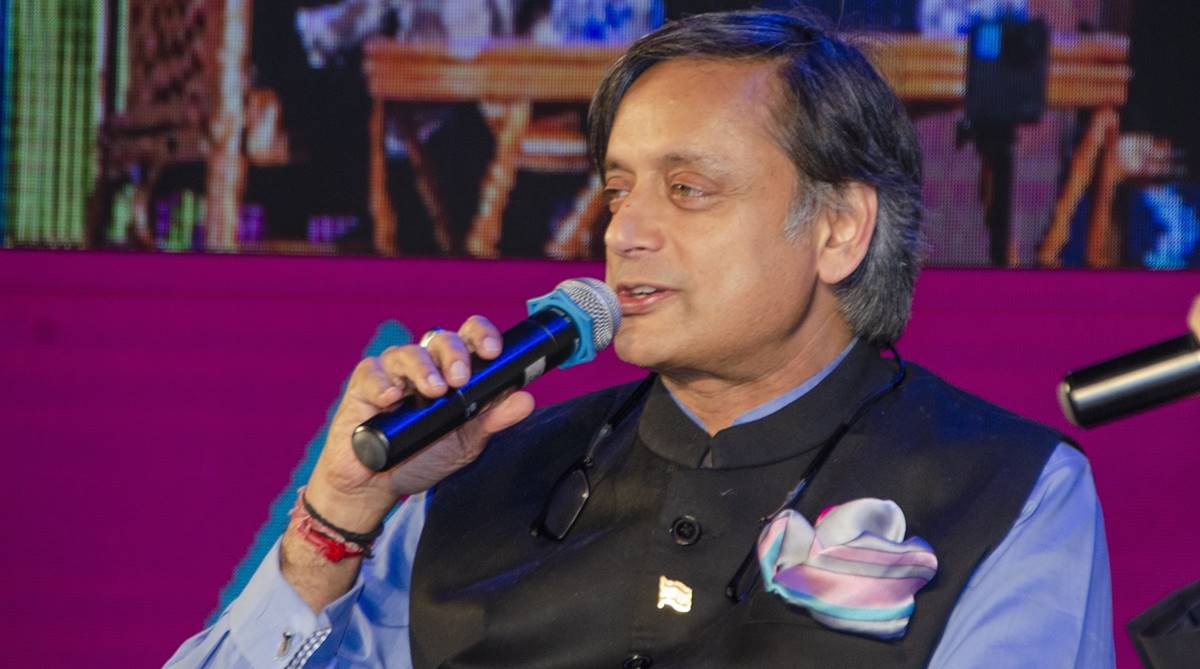Hate speech: BJP leader George seeks time to appear before police
George on Saturday requested the police for an extension until February 24 to appear before them for investigation in connection with the case.
In interview to The Statesman, MP Shashi Tharoor says the current regime has proved to be bad for both hard and soft power

( File Photo: IANS)
Shashi Tharoor, author of 18 books and Member of Parliament from Thiruvananthapuram, had come to the Apeejay Kolkata Literary Festival 2019 in Kolkata to speak on the topic of ‘The Great Indian Paradox’, and was in conversation with novelist and publisher David Davidar. They spoke on several topics, the most popular of those being Narendra Modi, thoughts on religion (Tharoor has written a book titled Why I Am a Hindu in the past), Hindutva, and the general political scenario in the country. In an exclusive interview to The Statesman, Shashi Tharoor shared his thoughts on a variety of matters. Excerpts:
In your book Pax Indica, you have devoted your largest chapter to India’s relations with Pakistan. If the Congress comes to power post Lok Sabha polls, what would the party’s strategy be with regard to Pakistan?
Advertisement
I think the clear lines are laid down. We are fundamentally about protecting the safety of our people; so dealing with terrorism is a priority for us. We would expect Pakistan to take serious action to dismantle the terror that has been created there and punish militant perpetrators, particularly those responsible for 26/11. Beyond that, we are a little more prepared to explore constructive engagement than this government appears to have been and we will have to act on the basis of our own experience. In the past, civilian governments in Pakistan have been unable or unwilling to challenge the military stranglehold there. So, much of the change may require Pakistan to change in a way that the military has a less dominant voice, or it may require the military to have a conciliatory view of its own interest, as it did under General Musharraf. But when we are in government, we will have to look at all the circumstances of the time; but I would say that the Congress brings so many decades of experience with it regarding these issues that people should be reassured that the country will be in safe hands.
Advertisement
You have often spoken about the difference between hard power and soft power, saying that India uses soft power in matters of diplomacy, whereas countries like China and Pakistan often use hard power. Do you think the current BJP government has shown hard power in its governance, both internally and externally?
No I don’t think so, because if it had then the preposterous Rafale deal would not have taken place, which is one case where the security of the nation has been undermined in the interests of a favoured few. Putting a deal like this above national interest is no sign of hard power at all. Even on the grounds of soft power they have done a lot of damage by their intolerance at home which is reflected in media coverage abroad; if one would pick up a newspaper in the western world, they would see negative stories about India regarding things like communal violence and attacks on Muslims and Dalits. I think this government has been bad for both hard and soft power. Creating a movie out of a ‘surgical strike’, when it wasn’t one, is propaganda, not hard power. It was a cross border raid like many that have been conducted in the past under the UPA.
Apart from a film on the surgical strike, another film called The Accidental Prime Minister was released recently which courted a lot of controversy as did the book it is based on,written by Sanjaya Baru. What is your view on such films?
I’m a strong believer in freedom of expression and I think people should have the freedom to write books we disagree with and make bad films. I haven’t watched this particular film, but if you read five reviews and four of them tell you it’s terrible, why would you go and watch it? That’s my attitude regarding the film, but I would never call for any film to be banned unless it has incited hate or committed libel. In this particular case, you’re looking at a climate three months before the election and this is purely one more campaign and does not deserve serious discussion.
Finance Minister Arun Jaitely, in Parliament, claimed to have known you for the last four decades.
Well first let me just say that I have known him for the last four and a half decades; he was the general secretary of the Delhi University’s student union when I was president of the St. Stephens college students union, so we go back to 1974. Also, I feel a great deal of concern about his health and I wish him a speedy recovery
Advertisement